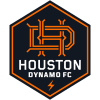Throw the blowouts out the window: All eight Game 1 victors still need one more win to advance in the Audi 2023 MLS Cup Playoffs.
That means there’s no use in riding out a low defensive block to protect a massive aggregate lead. (Sorry, LAFC, FC Cincinnati and Sporting Kansas City, who each won their first match by three goals).
If any team with a 1-0 series lead loses their Game 2, it forces a do-or-die Game 3 that – like all Round One matches – goes straight to penalties if tied at the end of regulation. Any club would prefer to avoid that sort of 50/50 affair if possible, especially coming off a Game 2 loss.
Here’s how each team with a series lead can finish the job in Game 2. Conference Semifinal tickets are up for grabs.
Dominate the wings
- Game 1: 3-0 win vs. New York
- Game 2: Saturday, Nov. 4 | 7 pm ET (Apple TV - MLS Season Pass)
First things first, Cincinnati can’t afford to get crushed on critical 50/50 duels and ball recoveries like Charlotte FC did in their blowout Wild Card loss at the Red Bulls. But Pat Noonan's side doesn’t need to dominate those stats either.
The Red Bulls posted better numbers in both categories in Game 1 and still took a 3-0 loss. That's partly because Cincinnati scored off one of the key loose balls they did win (via a Luciano Acosta near-midfield banger), but more because the Orange & Blue punished RBNY for their narrow defensive and attacking shape.
One major ingredient of the Red Bulls’ press-happy recipe is shrinking the width of the field and, subsequently, the space their opponents can play in. The inherent risk to that strategy is when teams do manage to get the ball wide, they end up forcing RBNY into all sorts of sloppy defensive recoveries.
That exact scenario played out twice to the tune of two Álvaro Barreal goals in Game 1. Cincinnati have gotten elite play from their Argentine wingback all season, so if they can just survive in the middle of the park long enough to feed him the rock, good things will happen.
Patient build-up play
- Game 1: 2-0 win vs. Dallas
- Game 2: Saturday, Nov. 4 | 9 pm ET (Apple TV - MLS Season Pass)
Once upon a time (like, most of 2019-22) the Sounders could punish teams on the counter through Jordan Morris on the left wing. They still have that ability to some degree via Léo Chú on the left and Morris as the No. 9, but their strength now lies more in patient build-up play, which allows fullbacks Alex Roldan and Nouhou (or Reed Baker-Whiting) to push high and join the attack while the increasingly-important Josh Atencio probes at defenses from the midfield with his tireless off-ball movement.
To boot, Seattle had the fourth-highest passes per possession in the league in 2023. When clicking on all cylinders, those methodical passing sequences not only lead to quality chances – see goal two against Dallas wherein eight Sounders players pick up positions near or in the attacking third – but also lead to defense-via-offense. It’s hard for opponents to build meaningful attacks when they’re pinned that deep in their own third.
Admittedly, this style is difficult to pull off on the road. But with Alan Velasco (torn ACL) out for Game 2, the Sounders don’t have a ton to fear outside of Jesús Ferreira going the other way. As long as Brian Schmetzer’s side doesn’t give away cheap passes in their own half (which they did twice in Game 1), they should be able to suffocate Dallas’ attack by controlling the ball.
Avoid costly turnovers
- Game 1: 4-1 win at St. Louis
- Game 2: Sunday, Nov. 5 | 5 pm ET (Apple TV - MLS Season Pass)
Not to give St. Louis CITY SC bulletin board material, but Sporting Kansas City sure looked like they had an individual-talent advantage in Game 1. Golazos aside, a lot of the visitors' success came from STL’s really poor mistakes (cheap giveaways, mishit clearances, whiffed tackles, etc.). All year, St. Louis have preached “the team is the star,” but it’s fair to wonder if in the playoffs – where margins tighten and lineup holes are ruthlessly exploited – they may lack down-roster talent.
Then again, Bradley Carnell’s side did cruise to the Western Conference’s No. 1 seed via their well-defined system of play: Turning teams over in the midfield and breaking towards goal at head-spinning speeds. If Kansas City get sloppy with the ball at home, St. Louis could easily reverse Game 1’s result.
If, however, SKC show their veteran savvy and work the ball around STL’s biting press, then they can take advantage of favorable individual matchups – particularly on the wings where they gave the home side’s fullbacks fits in Game 1.
Cut out service to Brian White
- Game 1: 5-2 win vs. Vancouver
- Game 2: Sunday, Nov. 5 | 7:30 pm ET (Apple TV - MLS Season Pass; FS1, FS2; TSN, RDS)
Yes, the low-hanging fruit answer here is for LAFC to score four more set-piece goals like they did in Game 1. But let’s assume for a minute that Vancouver remember it’s a playoff game and tighten the screws defensively on dead balls. Suddenly, this matchup starts looking a lot more even than Saturday’s 5-2 blowout.
Now, factor in travel to BC Place, and LAFC may well be the underdog in Game 2 – especially considering they were the only Game 1-winning team to give up multiple goals. Vaunted as LAFC's attack is (and rightfully so), they probably can't bank on scoring three on the road.
That means the chief concern for head coach Steve Cherundolo should be slowing Vancouver's attack, and that starts with cutting off service to Brian White. The Whitecaps do-everything forward creates tons of headaches for backlines both on and off the ball – and doubly so after Ryan Gauld started lining up next to his running mate in a two-striker system.
That’s because he’s both a willing runner in behind:
And because he’s excellent in hold-up play, where he can occupy center backs and allow Gauld the freedom and space to peel off into the midfield and make the game for ‘Caps:
Gauld may stir the Whitecaps' drink with his top-tier playmaking, but, somewhat counterintuitively, a lot of his best plays start at the foot of his goal-scoring partner. Whether it’s through excellent midfield pressure or a concerted effort to bracket White defensively (especially in transition moments), LAFC would be well-served to stop the ball from reaching the dangerous striker's feet.
Elite movement in the final third
- Game 1: 2-1 win vs. Salt Lake
- Game 2: Monday, Nov. 6 | 9 pm ET (Apple TV - MLS Season Pass)
With Héctor Herrera running the show, Houston more or less operate off the principle that skilled attackers find ways to pick up dangerous positions and get each other involved in attack, no matter their initial place in starting formation. That’s why Ben Olsen's team have consistently scored some of the best tiki-taka goals on the season.
Every player in Houston’s front five is more than capable of occupying any space in the final third as either a creator or a finisher, and their fullbacks (especially Griffin Dorsey) are happy to get involved too. That versatility allows Houston to give-and-go teams into oblivion, and their two goals against RSL in Game 1 were no different.
The downside to the approach is it leaves them wide open on the counter, which RSL exploited for their lone goal of the match. But Houston didn’t win the US Open Cup and the West’s No. 4 seed by playing it safe, so there’s not much reason to start now. The worst that happens is a Game 3 back at Shell Energy Stadium, where the Dynamo posted an impressive 11W-2L-4D record for 2023.
Contain Thiago Almada
- Game 1: 2-0 win vs. Atlanta
- Game 2: Tuesday, Nov. 7 | 7 pm ET (Apple TV - MLS Season Pass)
Credit to the Columbus Crew for getting the job done at home against an Atlanta United team missing their most important player: Thiago Almada (who was absent from Game 1 due to red card suspension). But the Crew can expect a totally different dynamic when Almada returns to the lineup for Game 2 at Atlanta's Mercedes-Benz Stadium.
Atlanta had the second-most potent attack in the league this year (behind only Columbus) with 66 goals scored, but Almada (11g/19a) accounted for a huge chunk of that. The underlying numbers back up Almada's outsized influence on the team, too, with TruMedia via StatsPerform crediting him with 41.2% of the side's "big chances created" on the year. The next highest player on that list is Brooks Lennon, with 17.6%.
Almada's absence also forced head coach Gonzalo Pineda to roll the dice on a more defensive lineup, as he left DP Saba Lobjanidze out of the starting XI as well. Assuming both Almada and Lobjanidze start Game 2, there's virtually no way the Crew (or any team for that matter) can contain Atlanta to 0.1(!) xG like they did in Game 1.
Aidan Morris is Columbus' best destroyer in the midfield, so head coach Wilfried Nancy will need a big defensive performance from the 2023 MLS All-Star (likely at the cost of his offensive game) if his team hope to pull off the road heist in Atlanta.
Find the killer pass
- Game 1: 1-0 win vs. Nashville
- Game 2: Tuesday, Nov. 7 | 9 pm ET (Apple TV - MLS Season Pass)
Like Houston and Seattle, Orlando bossed the midfield en route to a Game 1 win. Unlike Houston and Seattle, Orlando only scored once, and it wasn’t just a case of missed chances.
Despite racking up 25 shots on the night, Orlando accrued a meager 1.2 expected goals. For reference, the 2023 league average for shots per game was 12.5, and the expected goals per game was 1.3. That means Orlando were consistently settling for low-quality chances against Nashville SC’s tightly-packed defense.
To be fair, Nashville deserve credit for tempting opponents into low-quality chances all year, which often leads to Hany Mukhtar counter-attacks. Still, a number of Orlando's forays into the final third ended with the wrong pass or a touch too many in the box. Take this moment in the 77th minute, one of many where Orlando could have iced the game:
Iván Angulo misses the back-post run of Facundo Torres and settles for a shot with a slew of defenders in front of him. It’s not a criminal offense from Angulo – the window to hit Torres was small – but those are the passes needed to beat Nashville’s stacked defense, especially on the road.
Press, press, press
- Game 1: 3-1 win vs. New England
- Game 2: Wednesday, Nov. 8 | 7 pm ET (Apple TV - MLS Season Pass; FS1, FOX Deportes; TSN, RDS)
The Revolution are a wounded animal at this point. Their injury woes and coaching changes have been well-documented all year, only to be compounded by star player Carles Gil leaving Game 1 early with an apparent injury. Head coach Clint Peay says Gil is “fine” and back in training, but the jury is out on exactly how fit the No. 10 will be for Game 2.
That in mind, the Union would be well-served to stick to their identity and take the game to New England via organized but ruthless pressing, even on the road. While Philadelphia’s defensive prowess is a little less duel-oriented than New York or St. Louis, they led the league by some margin this year in interceptions per game. When they set traps and capitalize as a unit, few teams can play through them.
Take their first goal from Game 1. Jack McGlynn, more known for his cultured left foot than his hard tackles, relentlessly presses DeJuan Jones into his own corner, leading to a deflected clearance that eventually becomes a PK for Philadelphia:
Right now, it’s unclear if New England have the talent (or speed) to punish the Union for selling out on the press. Tómas Chancalay remains a threat, but if it comes down to a battle between Chancalay on the break versus Philly’s front three feasting on turnovers, that’s advantage Philly.






















